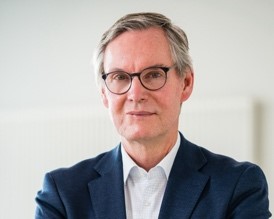Dr. Eduard Arzt
Leibniz Institute for New Materials and Saarland University
Seminar Information

Evolution has evolved fascinating resource-efficient materials architectures to solve mechanical problems. In this talk, I will review the mechanics of gripping like a gecko, which is mainly due to van der Waals interactions mediated by microfibrillar (‘hairy’) structures. After more than a decade of focused work in this area, we have recently developed release mechanisms for micro-objects with negligible mass, which are otherwise difficult to detach. Implementation in robotic pick-and-place applications has led to a machine-learning concept based on optical monitoring, which is designed to accelerate industrial acceptance of this new technology. As a serendipitous development, we have adapted such adhesive structures to stick to skin, which has led to a clinical adhesive for ear surgery. A new concept from Nature is the optimization of ‘stingers’ for easy penetration. It will be shown that sharp stingers, with sizes ranging from microns to millimeters, solve the conflict between buckling and penetration by adopting a ‘universal’ parabolic shape with an exponent close to 2. Analysis of these competing processes identifies a window of shapes in which penetration always precedes buckling. These examples highlight Nature’s need to ‘design’ and ‘optimize’ by geometric or structural variation as it has, compared to engineers, access to only relatively few high-performance materials.
Eduard Arzt is Distinguished Visiting Professor in the Program in Materials Science and Engineering at the University of California, San Diego. He is the former Scientific Director of INM – Leibniz Institute for New Materials in Saarbrücken and, prior to that, co-director of the Max Planck Institute for Metals Research in Stuttgart. Subsequent to a PhD in physics from the University of Vienna, Austria, he performed research, i.a., at Cambridge University, Stanford University, MIT, and the University of California. His current research areas at UCSD are gripping in space, micropatterned solutions for biomedicine and wearables, and biomechanics of ocean life. Among his recognitions are the highest German science award, the Leibniz Award, the 2022 Fellow Award and the 2023 William D. Nix Award of TMS. Several academies, including the US National Academy of Engineering, list him among their members. Arzt is editor-in-chief of the leading review journal Progress in Materials Science and co-founder of a start-up in automated handling.
